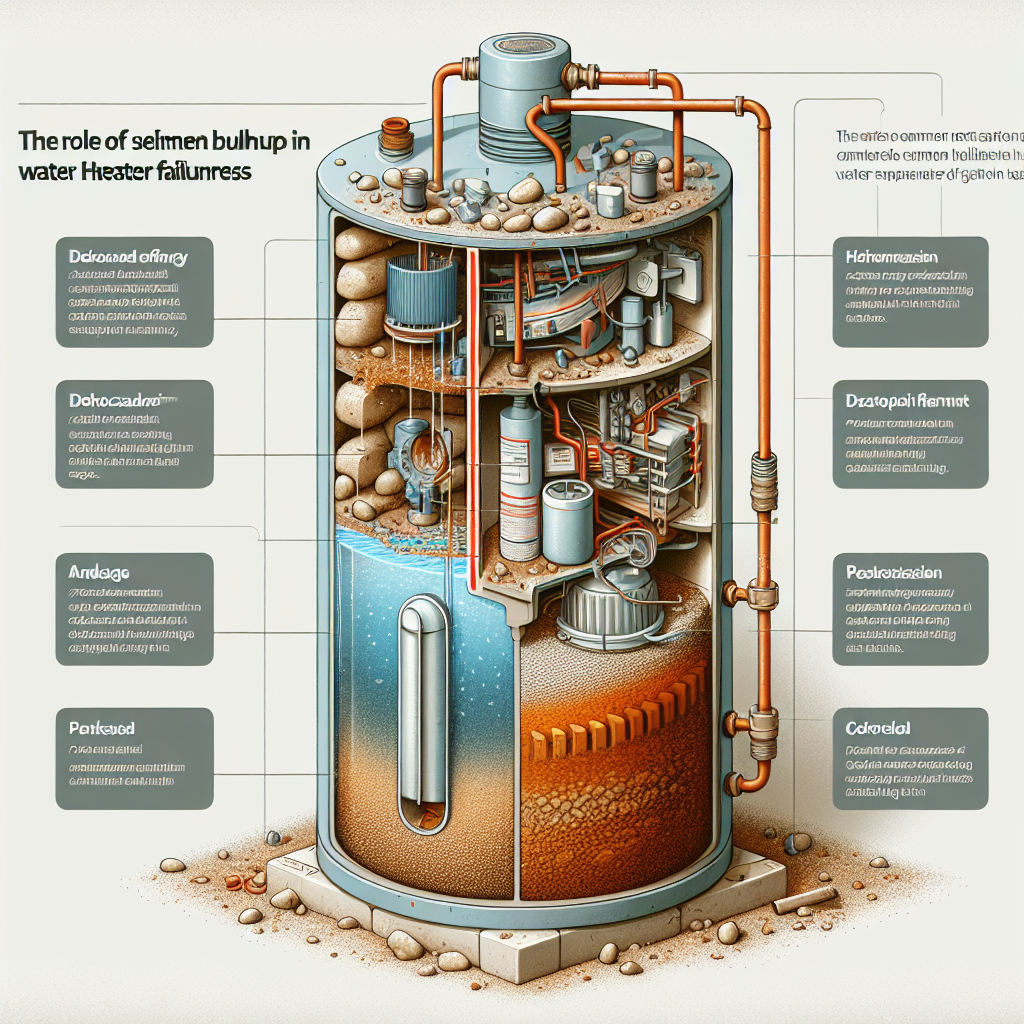Every homeowner relies on a well-functioning water heater for daily chores, comfort, and hygiene. However, one common issue that can lead to unexpected failures and costly repairs is sediment buildup. In this article, we’ll explore how sediment accumulation affects water heaters, the signs of potential problems, and maintenance tips to keep your system running smoothly.
Understanding Sediment Buildup
What Causes Sediment Buildup?
Water naturally contains minerals such as calcium and magnesium. When water is heated in a water heater, these minerals can precipitate out and settle at the bottom of the tank, forming sediment. This problem is exacerbated in areas with hard water, where mineral content is exceptionally high. Over time, this sediment layer can thicken, posing a risk to your water heater.
Types of Sediment
Sediment can vary in composition, but the most common types include:
- Calcium Carbonate: A white, chalky deposit often found in hard water.
- Magnesium Carbonate: Similar to calcium, but generally a softer mineral.
- Iron and Rust: Can occur in old plumbing systems and may lead to discolored water.
How Sediment Affects Water Heater Performance
Reduced Efficiency
One of the most immediate impacts of sediment buildup is reduced efficiency. The sediment layer acts as an insulator, making it harder for the heating element to heat the water. As a result, your water heater has to work overtime, leading to increased energy bills and potential long-term damage.
Risk of Overheating
As the sediment accumulates, it can cause the heating elements to overheat. This situation may lead to premature failure of the heating elements or, in some cases, the entire water heater. If your water heater is constantly cycling on and off due to inefficient heating, it can stress various components and lead to early failure.
Tank Damage
In extreme cases, sediment buildup can cause significant damage to the tank itself. When the minerals accumulate, they can cause the tank to rust or corrode from the inside, eventually leading to leaks and water damage. Not only is this a hassle, but it can also lead to costly repairs or a complete replacement of the unit.
Signs Your Water Heater is Affected by Sediment Buildup
Unusual Noises
Recurrent popping, rumbling, or hissing sounds coming from your water heater may indicate sediment buildup. As sediment heats and cools, these sounds are often a sign that it’s time to flush the tank.
Fluctuating Water Temperature
If you notice inconsistent water temperatures, it could be a sign that your heater is having trouble heating water effectively due to sediment obstruction.
Discolored Water
If you see brown or rusty water coming from your taps, your water heater might be corroding, which can be a direct consequence of sediment buildup.
Preventing Sediment Buildup
Regular Maintenance Checks
Just like any other appliance in your home, your water heater benefits from regular maintenance. Consider scheduling an annual inspection with a licensed plumber. They can check for signs of sediment buildup and flush the tank if necessary.
Flushing the Tank
Flushing your water heater is an effective way to prevent sediment buildup. Aim to flush the tank at least once a year:
-
Turn Off the Heater: For electric heaters, switch off the power. For gas heaters, set it to “pilot” mode.
-
Shut Off the Inlet Valve: Prevent new water from entering the tank.
-
Connect a Hose: Attach one end of a garden hose to the drain valve at the bottom of the heater, and run the other end outside or into a floor drain.
-
Open the Drain Valve: Allow the sediment and water to exit the tank. You may need to open the pressure relief valve to help water flow smoothly.
-
Flush with Fresh Water: After draining, close the valve and refill with fresh water to flush out any remaining sediment.
- Reconnect Everything: Once completed, reconnect and turn your water heater back on.
Using a Water Softener
If you live in an area with hard water, consider installing a water softener. It can significantly reduce the mineral content in your water, thus minimizing sediment buildup over time.
Conclusion
Understanding the role of sediment buildup in water heater failures is crucial for any homeowner. Regular maintenance and simple preventive measures can save you from costly repairs and ensure your water heater runs efficiently for years to come. By being proactive, you can enjoy hot water without disruption, knowing you’re taking care of one of your home’s most essential appliances.


